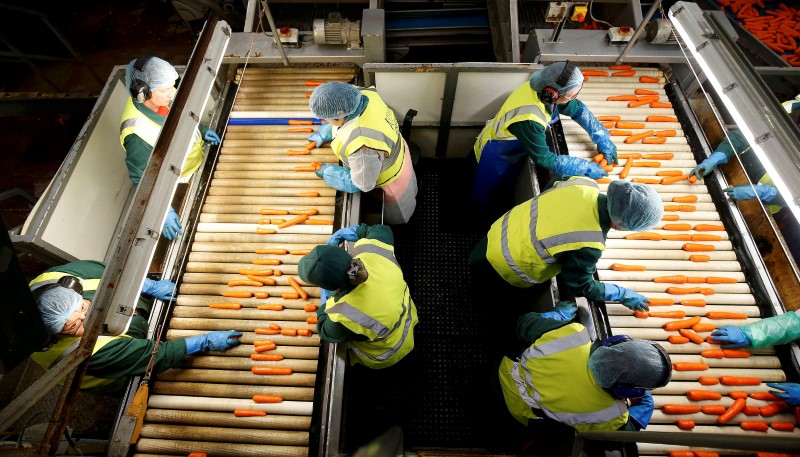LONDON, (Reuters) - British pay growth lagged inflation for the first time in two-and-a-half years in early 2017, underscoring the growing Brexit squeeze facing many households, official data showed on Wednesday.
Excluding bonuses, earnings rose by 2.1 percent year-on-year, the weakest increase since July of last year and below expectations for a 2.2 percent rise in a Reuters poll of economist.
That meant pay, adjusted for inflation, fell by 0.2 percent in the first three months of the year, the first fall since the third quarter of 2014.
Britain's opposition Labour Party has made weak wage growth one of its main themes ahead of a June 8 national election which opinion polls suggest Prime Minister Theresa May is on course to win.
While wage growth is weak, there are other signs of continued strength in the British labor market.
The unemployment rate in the period between January and March unexpectedly fell to its lowest level in nearly 42 years at 4.6 percent. Economists polled by Reuters had expected the rate to remain at 4.7 percent.
And the number of people in work rose by a strong 122,000, taking the employment rate to a new record of 74.8 percent, the Office for National Statistics said.
The BoE is watching closely for signs of a pick-up in wages that could add to inflation which seems to be heading for around 3 percent due to the fall in the value of the pound since the Brexit referendum and as oil prices rise.
So far the central bank believes there is little pressure on most employers to raise pay sharply which could feed a more permanent inflation problem.
Instead, the Bank has softened its previous forecasts for a rise in unemployment which it expects to stand at 4.7 percent this year, still above the level which it considers inflationary.
A survey published earlier on Wednesday showed inflation gnawed further into the budgets of British households this month, resulting in the sharpest fall in cash available to spend in two-and-a-half years.
Earlier this week, another survey showed employers plan to increase pay by just 1 percent in the year ahead, the weakest rate since 2013.
The ONS said workers' total earnings including bonuses rose by an annual 2.4 percent in the first quarter of 2017, edging up from growth of 2.3 percent in the three months to February and in line with the forecast in the Reuters poll of economists.
The BoE expects wages to rise by 2 percent this year before picking up in 2018 and 2019.
Data released on Tuesday showed consumer price inflation picked up speed in April to hit 2.7 percent and many economists think it will reach 3 percent soon.
The ONS said the number of unemployment benefit claimants rose by 19,400 to just under 793,000 in April, slower than an increase of 33,500 in March.

Economists taking part in the Reuters poll had expected the number of benefit claimants - which is considered to be a potential early warning sign of an economic downturn - to rise by 7,500.